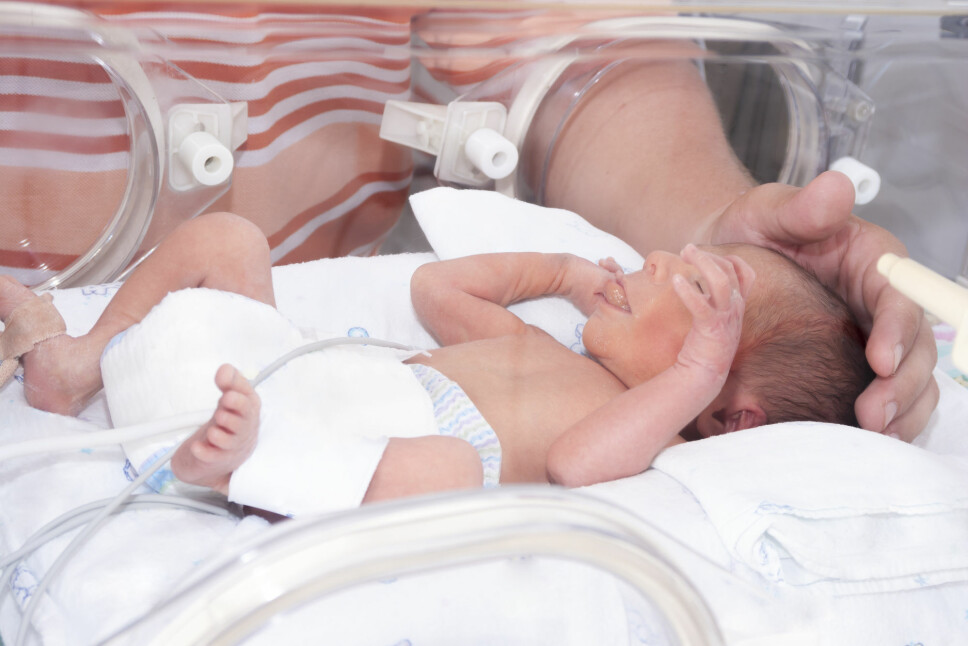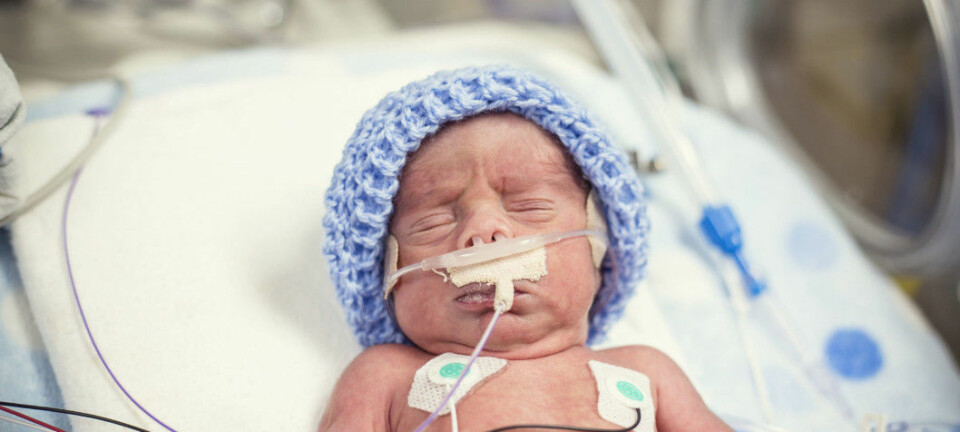
Children born more than three weeks early may have a delayed language development
Babies born very prematurely may develop problems speaking in complete sentences and following conversations. "Struggling with language has a big impact on children's lives," says researcher.
Children born prematurely can develop various problems as they grow up. Not only do they struggle more at school, but two out of three children born before week 28 face major health problems later in life, according to NRK, the Norwegian public broadcaster (in Norwegian).
Health issues in this population range from lung problems to brain-related issues, like arm and leg movements or ADHD.
But even though their brain work a little differently, nothing is necessarily wrong. Research from NTNU shows that the brains of children born prematurely react with more surprise when something happens, but are able to respond quickly in those situations.
Now researchers have looked at the language development of preterm children – both those born three weeks early and those born a full three months early.
It turns out that most children born preterm lag behind in language development to begin with. But many of them manage to catch up by the time they are three to five years old.
Depends on how early they were born
A normal pregnancy lasts 40 weeks.
The researchers examined children who were born more than three weeks early, at week 37 or earlier.
They divided the children into three groups:
1. Children born three to six weeks preterm (between weeks 35 and 37)
2. Children born six to twelve weeks preterm (between weeks 29 and 34)
3. Children born more than 12 weeks preterm (before week 28)
The results show that children in the first group lag behind in language development when they are one and a half years old, but not when they are three and five years old.
The children in the second group have language delays at both three and five years of age. But here too the differences gradually diminish, with most youngsters catching up before they turn three years old.
Kids born before week 28 have biggest problems
Kids in the third group had the hardest time. They experienced the most language delays – and still did at age five.
Imac Maria Zambrana, a researcher at the Norwegian Institute of Public Health (FHI), summarizes the findings like this:
“It’s important to point out that most children who are born prematurely and who have early language delays catch up to their peers before they start school,” she says.
“Primarily the few children who are born extremely preterm are the ones who may still have problems at five years old. The more preterm the children are born, the greater their risk of having language delays.”
A total of 26 769 children participated in the study.
All the children studied are participants in the Norwegian Mother, Father and Child Study. The parents filled out a questionnaire on their children's language development when the children were one and a half, three and five years old.
What does delayed language development mean?
Wenche Helland at the University of Bergen specializes in language difficulties in children. She has also researched language development in preterm babies. Her 2016 study also shows that some children born prematurely struggle with language development.
Helland believes the new study from the Institute of Public Health is particularly interesting and important because the researchers have followed a large group of children and looked at their development over time.
“When children are two years old, they usually start combining words into short sentences. By age four, the language is mostly in place,” says Helland.
Children who struggle with language development may have trouble using the right verb tense or the correct noun inflection. They also tend to have a smaller vocabulary and express themselves in short and incomplete sentences.
“Children with delayed language development also understand less of what is being said to them. They have a harder time understanding words and sentences,” says Helland.
Problems participating in conversations
According to Zambrana, the researcher behind the study, youngsters who still have language delays as pre-schoolers may have trouble following instructions, answering questions and identifying things that are named.
It can also be difficult for them to understand when it is their turn to say something in a conversation.
“Some children will have problems with sound production related to articulation and speech,” says Zambrana.
And when they start school, some of those born very preterm will have trouble learning letters and the alphabet.
Early efforts shown to help
Both Helland and Zambrana believe it is especially important to identify children with language difficulties so that they can get help early.
“At preschool age, brain plasticity is high and learning happens more easily. That is why it’s so important to implement measures as early as possible,” says Helland.
“When a child has language difficulties, it’s important to help parents and people working in kindergartens and health centres to learn how to best facilitate good language development,” she says.
Helland believes that the adults need to be good role models and actively use language with the child. That means reading aloud, talking to the child and putting words to the activities they do together.
Affects quality of life
Helland worries about children who get left behind in learning language.
“As much as possible, we should avoid putting these children in situations where they aren’t understood or don’t understand, she says.
“Language struggles have a big impact on children's lives,” says Helland.
Translated by: Ingrid P. Nuse
Reference:
Zambrana, I.M. et al: Language delays in preterm born children diminish before school entry: a sibling cohort study. Development and Psychopathology, March 2020. doi: 10.1017 / S0954579419001536
———
Read the Norwegian version of this article at forskning.no
































